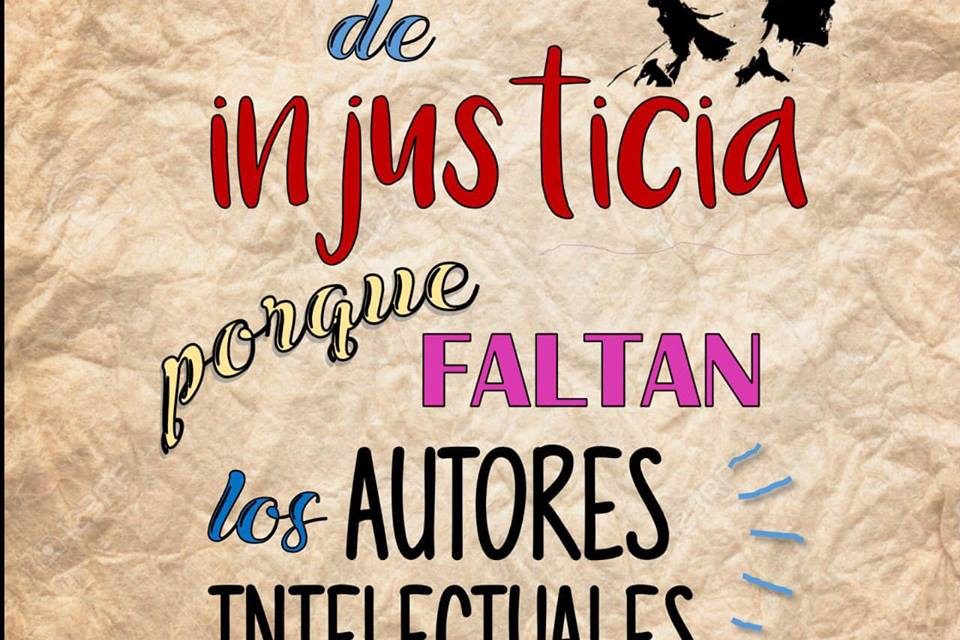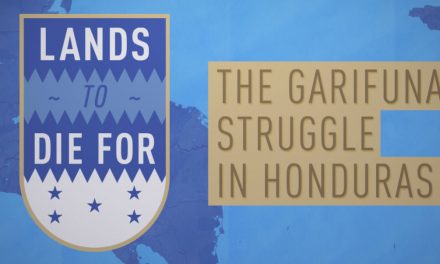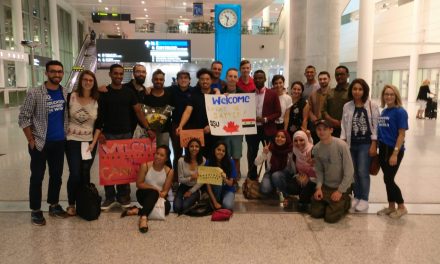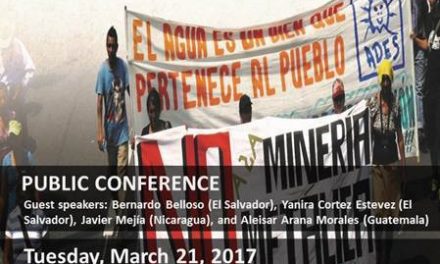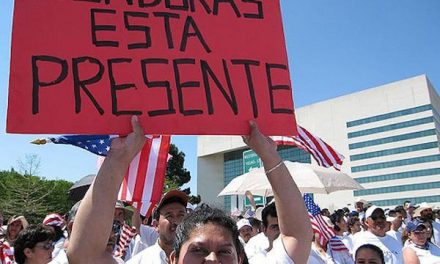Organizations express concern over Berta Caceres murder trial
November 29, 2018
“The struggle for justice for Berta Cáceres does not end here…We are not passive victims. We will act because Berta Cáceres deserves it, because the Lenca People deserve it, because they keep persecuting us even now because this criminal structure that killed Berta Cáceres is still active and we will also denounce that.” Laura Zúniga Caceres, daughter of Berta Cáceres who delivered the victims impact statement at the end of the trial.
From October 19 to November 24, the trial of the first eight accused in the murder of Berta Cáceres took place in Honduras. The widely recognized human rights defender and indigenous Lenca leader was the co-founder and coordinator of the Civic Council of Popular Organizations Indigenous people of Honduras (COPINH), which worked tirelessly to stop the Desarollos Energéticos Sociedad Anónima (DESA) “Agua Zarca” hydroelectric project on the sacred Gualquarque River. Before her murder in her home on March 2, 2016, Berta had denounced 33 threats against her that were never investigated, there was also an attempt to criminalize her; other leaders of COPINH were systematically attacked and killed.
International organizations from Canada and Quebec express concern over the handling of the case which has been plagued by irregularities, lack of transparency and violations of the victim’s due process. The Court denied the admission of evidence which showed the culpability of managers and employees of the hydroelectric corporation DESA, which, according to Berta’s family and a group of international legal experts who undertook an exhaustive investigation, is behind the murder.
In the lead up to the trial, evidence proposed by the victim’s lawyers that provided important contextual information and information regarding the broader criminal structure that conspired to commit the murder, was not allowed by the court. This included expert analysis that demonstrated the likelihood of participation additional conspirators and those who ordered the murder.
During the trial it was demonstrated, largely through text messages from seized telephones, that executives within DESA hired their former private security chief, retired military intelligence officer Douglas Bustillo, to coordinate Berta Caceres’ murder. While DESA’s social and environmental manager, Sergio Rodriguez, used a network of paid informants to monitor Berta’s movements, Bustillo recruited the top-ranking special forces intelligence officer, Major Mariano Diaz, and a criminal cell he managed to carry out the murder. The state prosecutor’s office failed to fully investigate key pieces of the case in particular evidence that would link the directors of the company DESA to the murder.
From the very beginning the trial was plagued with irregularities and violations of due process. The Court proceeded with the trial before substantive pretrial motions had been exhausted, putting the eventual rulings at risk. These included motions related to COPINH’s right to participate as victims, limitations on the public nature of the trial, and the recusal of the judges.
Despite repeated requests, prosecutors did not present Criminal Conspiracy charges against the accused, which would have facilitated the introduction of evidence that described the activities of the criminal networks responsible for Berta Caceres’ murder. More than two years after key evidence such as cell phones and a weapon, found in the home of the senior military intelligence officer currently on trial, the Public Prosecutor’s Office reported that most of the items seized had not been analyzed.
The trial opened with the expulsion of the lawyers representing the victims from the proceedings, who the Court ruled had  abandoned the trial, even as they had presented a written explanation of their absence as is required by Honduran law and practice, a grave infringement on the victim’s rights as established under Honduran and international human rights law.
abandoned the trial, even as they had presented a written explanation of their absence as is required by Honduran law and practice, a grave infringement on the victim’s rights as established under Honduran and international human rights law.
Throughout the preliminary hearings, both the victims and the defense were denied access to evidence by state prosecutors, this occurred even when the Court ordered public prosecutors to hand over evidence. The Court did not sanction the State prosecutors at any time for disobeying orders.
The court denied the request of the victims to participate in the process and to have their own legal council, instead forcing them to accept legal representation of the Public Prosecutor which had obstructed and withheld key information from them.
COPINH and the family of Berta Cáceres have declared the legal process as illegal due to the amount of illegalities carried out by the State of Honduras during the legal process.
COPINH reports that threats against community members who oppose DESA’s ongoing hydroelectric concession grew during the trial, forcing at least one Lenca leader to flee the region. This may have been fueled by a smear campaign directed against COPINH. As evidence against their clients grew, a Washington based law firm hired by DESA published unsubstantiated accusations of violence by COPINH, putting the organization and its members at risk. They also published outrageous and demeaning suggestions about Berta’s sexual life, going so far as to assert that harassing messages sent to Caceres by Bustillo demonstrated the existence of a romantic relationship.
The verdict issued on November 29, 2018 is an important first step, however justice will not be served until the criminal structure behind the murder of Berta Cáceres is exposed and the material and intellectuals’ authors are brought to justice.
We call on the Honduran Attorney General to fully investigate and prosecute additional individuals implicated in Berta Caceres’ murder and other violence related to the Agua Zarca dam, including the masterminds and financiers who continue to promote violence in the Rio Blanco region.
We reiterate due process concerns that have been raised by members of the Legal Observer Mission and others, which could provide grounds for future appeals.
BC Teachers’ Federation
Comité pour les droits humains en Amérique latine (CDHAL)
Common Frontiers
Ontario Secondary School Teachers’ Federation
Steelworkers Humanity Fund

